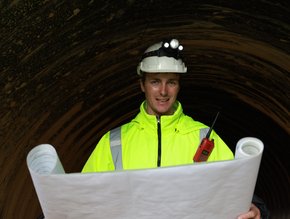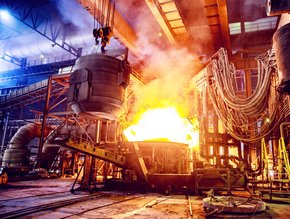What does it take to be a responsible miner?

Mining companies know their license to operate is contingent on operating responsibly—it’s their legal obligation. However, being a responsible miner is more than just adhering to regulations and guidelines—it’s a voluntary action to go above and beyond the call of duty.
The way to truly distinguish a responsible miner is by their Corporate Social Responsibility (CSR) programs. These are the initiatives undertaken by the company to either improve the living conditions (economic, social, environmental) of local communities or to reduce the negative impacts of mining projects on the environment.
• Related content: Newmont Mining ranked as mining industry leader by Dow Jones Sustainability World Index
Not every company is cut out to be a responsible miner. For some it doesn’t make business sense, while others simply cannot afford the financial resources. To be a responsible miner in today’s volatile mining landscape, it takes a variety of components.
We examine some of the biggest names in the industry to find out what it takes.
Changing the perception

Although public perception would say otherwise, mining companies have made significant stride in recent years to improve their corporate policies. Slowly but surely, it’s starting to pay off.
Earlier this year, Canadian magazine Maclean ranked Kinross Gold as the top mining company on their Top 40 Most Socially Responsible Companies in Canada list. The selection marks the sixth consecutive year the magazine has selected Kinross Gold.
"Operating in a socially responsible and sustainable manner is about partnership," said J. Paul Rollinson, Kinross President and CEO. "We approach that partnership on the basis of respect and a desire to contribute to the prosperity and well-being of the communities where we operate. These rankings reflect the dedication of our employees to transform that commitment into tangible results when it comes to everything from local hiring, and engaging local suppliers to employing environmental best practices."
• Related content: Anglo American Platinum CEO Discusses Sustainability in South Africa
Newmont Mining announced in July a partnership with Project C.U.R.E to provide $8 million in medical supplies, including training of personnel, in developing countries around the world. The partnership isn’t Newmont’s first contribution to the organization. The company has been helping Project C.U.R.E since 2004, contributing over $1.2 million.
“Newmont is proud to continue its support for the life-saving work Project C.U.R.E. does in developing countries around the world,” said Elaine Dorward-King, Newmont’s Executive Vice President for Sustainability and External Relations.
“Our two organizations are aligned in purpose, and our partnership gives us the means to improve lives by equipping health care professionals with the resources, tools and training necessary to help people in need.”
Canadian mining company Goldcorp is another example of what it means to be a responsible miner. According to Todd White, Senior Vice President of Business Excellence, the company’s primary focus in responsible mining is directed on reducing energy, water efficiency and reclamation.
• Related content: The framework for reducing energy consumption in mining
“We have some great examples of responsible water management happening at many of our sites, especially those based in South America. We believe that responsible water usage contributes to responsible mining practices, in terms of optimizing our water use by water recycling, and limiting the introduction of fresh water into our processes.”
The trend of responsible mining continues to move forward as mining companies strive to do the right thing.
Untold benefits

Responsible mining is all about letting the actions do the talking. Surprisingly enough, mining in a socially responsible manner can actually be good for business. Done correctly, the benefits of being a responsible miner include:
• Reduced labor shortages though investing in local education and skills training; more consistent production as a result of a healthier workforce.
• Less likelihood of conflict by building better relationships with local indigenous people and artisanal miners.
• Better access to lower cost services and supplies through regional business development; and faster access to financing because of lower perceived risk by equity markets.
• Taking action that doesn’t appear to be in the best interest of the business but rather the community in which they operate. This not only shows a very high level of authenticity but it reveals good will.
By assisting in things that don’t always make business sense, mining companies can actually build more authentic relationships with their host communities and therefore benefit themselves and shareholders in the process.
Embracing the responsibility

Mining is a complex and intensive process that causes environmental and social change no matter where it occurs. It is imperative that mining companies embrace social and environmental responsibility to give back to their host communities.
The International Council on Mining and Metals (ICMM) is one of the primary organizations dedicated to improving sustainable development performance in the mining industry.
• Related content: 25 mining companies you should follow on social media
Members are required to implement the organization’s Sustainable Development Framework, which includes integrating a set of 10 principles and six supporting position statements into corporate policy, as well as integrating transparent and accountable reporting practices.
“Our challenge is to ensure that these implications add up to a net positive contribution over the long term – to individuals, their families and communities, to the countries in which we operate and the enveloping ecosystem. In so doing, we enhance security, touching on the most basic of human and ecological needs. We can then serve – as we need to serve - as a bridge to the future,” said ICMM President Anthony Hodge.
Transparency is another way mining companies can embrace responsibility. The Internet has put the industry on notice as it can take stories about operations and companies, and spread it worldwide at a moment’s notice. Because of this, corporations have to be accountable to a degree that was never anticipated back in the golden years.
Responsible miners should share what they’re doing and how they’re doing it. It’s important to deliver that message, especially to advocacy groups, indigenous people, investors and other stakeholders to showcase how the company is striving to improve.
To be a responsible miner, it doesn’t take much--it simply takes the will power to do the right thing.
Stay connected! Follow us on Twitter and like us on Facebook
- Brightstar, Eldridge and Claure acquire AusencoSupply Chain & Operations
- First Quantum contracts with MECS to cut emissionsSupply Chain & Operations
- Tin production at Andrada Mining reaches record levelsSupply Chain & Operations
- Ternium plans to build US$3.2bn steel plant in MexicoSupply Chain & Operations






